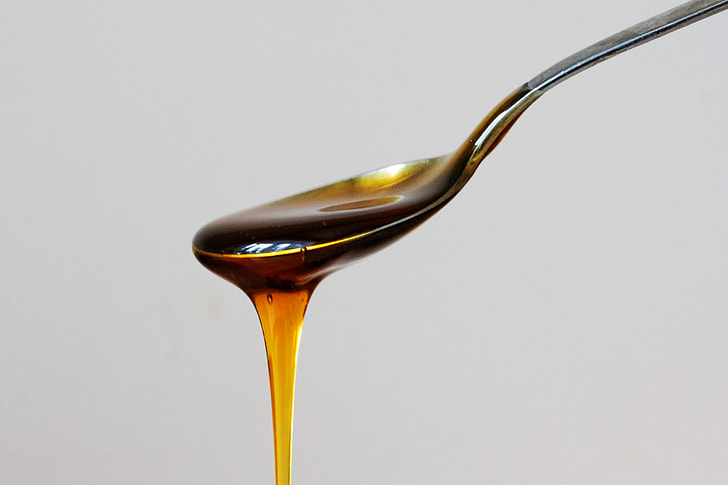
What is cane sugar? The Brutal Truth
The Brutal Truth About Cane Sugar
Why this ancient ingredient is making a comeback—and what it means for your health.
If you saw “cane sugar” on a label, would you feel reassured… or misled?
You’re not alone. Sugar has been a villain in the health world for decades. We’ve been told to cut it, fear it, and avoid it at all costs. But in the race to remove sugar from everything, we replaced something natural with something far worse.
Enter: glucose syrup.
It’s cheap. It’s processed. And now, it’s in almost everything. From ketchup to gummy vitamins, glucose syrup quietly dominates our food system—and not in a good way.
That’s why Coca-Cola’s latest announcement is making headlines. The brand that arguably pioneered mass sugar consumption is now ditching glucose syrup in the U.S. and switching to cane sugar.
That’s not a marketing stunt. It’s a shift in the tides.
So let’s unpack this.
What Actually Is Cane Sugar?
Cane sugar is exactly what it sounds like: sugar derived from the juice of the sugarcane plant.
Here’s how it works:
-
Farmers harvest sugarcane (a tall, bamboo-like grass).
-
The stalks are crushed to extract their juice.
-
That juice is filtered and boiled.
-
Once water evaporates, raw sugar crystals form.
That's it. No chemical solvents. No synthetic enzymes. Just basic cooking, the same way it’s been done for centuries.
The result is a product your body recognizes—because it’s been consuming it for generations.

So Why Did We Ever Switch to Glucose Syrup?
One word: cost.
Glucose syrup (also known as corn syrup) is made by breaking down starches, usually from corn, into glucose molecules through enzymatic processing. It doesn’t taste better, and it’s not better for you—but it’s far cheaper to produce at scale.
That’s why manufacturers love it.
Glucose syrup can:
-
Extend shelf life
-
Add sweetness and thickness to products
-
Cost less per gram than cane sugar
But there’s a catch.
While it ticks the boxes for business, it creates red flags for health.
The Problem With Glucose Syrup
Here’s what most people don’t know:
Glucose syrup isn’t just “not as good” as cane sugar. It’s actively harmful when overconsumed—and it’s designed to be overconsumed.
Let’s break it down:
1. It spikes your blood sugar faster.
Because it’s pure glucose, it rapidly raises insulin levels. This contributes to energy crashes, cravings, and over time, insulin resistance.
2. It can stress the liver.
Though high fructose corn syrup gets most of the blame, excess glucose intake (especially in liquid form) has also been linked to non-alcoholic fatty liver disease.
3. It feeds bad gut bacteria.
Studies have shown that processed sweeteners like glucose syrup can disrupt your gut microbiome, leading to inflammation, bloating, and poor digestion.
4. It’s in everything.
Cereals. Sauces. Supplements. Even "natural" protein bars. Glucose syrup is often disguised under names like "glucose-fructose syrup," "corn sugar," or just "glucose."
Most people have no idea they’re consuming it.
And that’s where the real danger lies.
Why Coca-Cola’s Move Is a Big Deal
Coca-Cola switching from glucose syrup back to cane sugar in the U.S. is more than just a formulation tweak. It’s a sign that the market is listening.
Big Food only changes when consumers demand it. So when one of the world’s most iconic brands reverses decades of product strategy, it signals something deeper:
Consumers want real ingredients. And they’re done being lied to.
This trend isn’t new—but it’s finally going mainstream.
Organic. Clean label. Minimal ingredients. Functional foods.
It’s all pointing toward the same thing: a return to what’s real.
Cane sugar fits that narrative.
The Psychology Behind Sweeteners
Here’s a truth nobody wants to admit:
People don’t want to give up sweet things.
We’re hardwired to seek sugar. It’s an evolutionary advantage that helped us survive scarcity. But in a modern world flooded with ultra-sweet, hyper-palatable products, this once-useful trait is now being hijacked.
Artificial and ultra-processed sweeteners prey on this instinct. They deliver the hit without the substance—a dopamine spike followed by metabolic chaos.
Cane sugar, on the other hand, is predictable. Your body knows what to do with it.
It’s the difference between fuel and fireworks.
What About in Supplements?
You probably don’t think much about what sweetener is used in your multivitamin. But you should.
A large percentage of gummy supplements on the market today are made with glucose syrup as the first or second ingredient.
Let that sink in.
The product you bought to support your health contains the same sweetener used in bulk candy. That’s like putting diesel in a Tesla.
It makes no sense.
At New Earth Essentials, we took a stand:
Our multivitamin gummies are made with natural cane sugar and stevia, not glucose syrup.
Yes, it costs more. Yes, it’s harder to manufacture.
But we don’t believe you should compromise between health and taste. You deserve both.
Isn’t Sugar Still Sugar?
Yes. Cane sugar is still sugar.
But here’s the nuance: It’s not just about what you consume—it’s about how, how much, and what comes with it.
Cane sugar, especially in its less refined form, still contains trace minerals from the sugarcane plant—minerals like calcium, potassium, and magnesium. These may help your body better tolerate the sugar, easing the metabolic load compared to ultra-processed alternatives like glucose syrup.
When used in small, deliberate doses (like 2g in a gummy), cane sugar offers a natural sweetness with minimal disruption. The problem is the sneaky, ever-present sweeteners that overwhelm your system without your awareness.
Cane sugar brings transparency. Predictability. And most importantly, it doesn’t insult your intelligence.
That matters.
So What Happens If You Get This Right?
Let’s say you start making small switches:
-
You buy gummies with cane sugar instead of glucose syrup.
-
You read the back of the label instead of the front.
-
You opt for natural sweetness over artificial intensity.
You start to feel the difference.
-
Fewer crashes.
-
Better digestion.
-
Less bloat.
-
More energy.
And eventually, you start trusting your body again. Because you’re finally giving it ingredients it knows how to process.
That’s the real transformation.
Final Thoughts: Cane Sugar Isn’t the Enemy
In a world obsessed with demonizing ingredients, we forgot to ask the bigger question:
What’s the intent behind it?
Cane sugar, when used intentionally, is not the villain.
It’s the bait-and-switch of ultra-processed sweeteners we need to worry about. It’s the health products that look clean on the front but hide corn syrup on the back.
You don’t have to be perfect. You just have to be informed.
So next time you see "cane sugar" on a label, don’t flinch. Ask why it’s there. And compare it to what the alternative might have been.
At New Earth Essentials, we chose honesty. We chose nature. We chose cane sugar.
And now Coca-Cola has too.
Want to taste the difference?
Check out our multivitamin gummies made with cane sugar and stevia—crafted for people who read labels.

